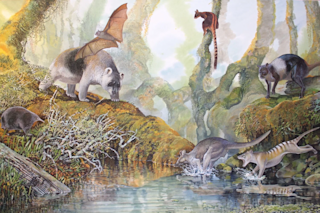Almost 40 years ago, Australian palaeontologists found the fossils of an ancient species of kangaroo, approximately 20,000 to 50,000 years old. Strong, stout and substantial in size, the fossil species featured the same powerful legs, long feet and lengthy tail quintessential of kangaroos today. What was truly surprising about the fossils, some would say, was that they were found outside of Australia, on the nearby island of New Guinea.
Though kangaroos sometimes seem an almost strictly Australian species, that’s not entirely true. Kangaroos have had a long history of roaming through the nearby islands, and these fossil findings only emphasized that fact. Now, recent reanalysis of those same fossils in Transactions of the Royal Society of South Australia elaborate this history, suggesting that these ancient kangaroos are actually the first species of new genus found only in Papua New Guinea.
A team from Flinders University initially found the fossils at ...















